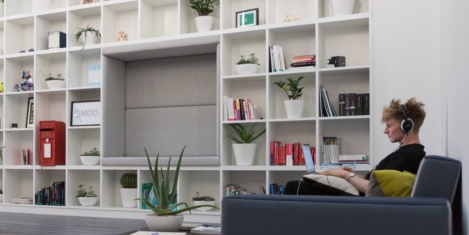September 28, 2021
Hybrid working opens door to greater risk of data breaches
 More than eight in 10 (83 percent) UK businesses say hybrid working increases the risk of a data breach, yet over a fifth (22 percent) remain unprepared if it happens, with speed of response the top concern. According to new research published within TransUnion’s Data Breach Support for Businesses ebook (registration), business leaders expect 43 percent of their workforce to be hybrid working in the coming year, splitting their time between the office and remote working. Yet this change to working practices means a far greater potential for devices and data to end up in the wrong hands. (more…)
More than eight in 10 (83 percent) UK businesses say hybrid working increases the risk of a data breach, yet over a fifth (22 percent) remain unprepared if it happens, with speed of response the top concern. According to new research published within TransUnion’s Data Breach Support for Businesses ebook (registration), business leaders expect 43 percent of their workforce to be hybrid working in the coming year, splitting their time between the office and remote working. Yet this change to working practices means a far greater potential for devices and data to end up in the wrong hands. (more…)







 As workers are encouraged to return to offices in greater numbers, employers should prepare for an influx of employees reporting symptoms of Long Covid. Cases are rising in the UK and it is estimated that a significant percentage of those testing positive for Covid-19 go on to develop Long Covid, a debilitating condition with symptoms ranging from fatigue and muscle aches, to breathing-related problems and chest pain. The duration of symptoms varies, with some sufferers recovering after 12 weeks and others continuing to suffer for far longer. While working remotely, it may have been possible for some employees to manage their symptoms privately; however, the requirement to attend the office may prompt them to disclose their condition and seek the support of their employer.
As workers are encouraged to return to offices in greater numbers, employers should prepare for an influx of employees reporting symptoms of Long Covid. Cases are rising in the UK and it is estimated that a significant percentage of those testing positive for Covid-19 go on to develop Long Covid, a debilitating condition with symptoms ranging from fatigue and muscle aches, to breathing-related problems and chest pain. The duration of symptoms varies, with some sufferers recovering after 12 weeks and others continuing to suffer for far longer. While working remotely, it may have been possible for some employees to manage their symptoms privately; however, the requirement to attend the office may prompt them to disclose their condition and seek the support of their employer. 
 Eighteen months since nationwide shutdowns, the global surge in COVID-19 cases is exacerbating the onset of virtual fatigue for many employees according to
Eighteen months since nationwide shutdowns, the global surge in COVID-19 cases is exacerbating the onset of virtual fatigue for many employees according to 
 Research from
Research from 


 Hybrid working could bring nearly four million people “locked out” from work such as parents, carers and disabled people into the workforce and enable part-time workers to work more hours adding £48.3bn to the UK economy each year, according to a new study by
Hybrid working could bring nearly four million people “locked out” from work such as parents, carers and disabled people into the workforce and enable part-time workers to work more hours adding £48.3bn to the UK economy each year, according to a new study by 
 Scotland is to become the latest nation to trial a
Scotland is to become the latest nation to trial a 
 More than two-thirds (70 percent) of UK businesses have been the victim of a successful network security attack in the last year, and 65 percent have been the victim of at least one ransomware attack in the last 12 months, according to new research from
More than two-thirds (70 percent) of UK businesses have been the victim of a successful network security attack in the last year, and 65 percent have been the victim of at least one ransomware attack in the last 12 months, according to new research from 
 While lower occupancy has reduced the carbon footprint of many commercial office buildings amid the pandemic, higher CO2 emissions from hybrid working significantly outstrips these declines, according to data analysed by
While lower occupancy has reduced the carbon footprint of many commercial office buildings amid the pandemic, higher CO2 emissions from hybrid working significantly outstrips these declines, according to data analysed by 
 New research from
New research from 
 CEOs of the world’s largest businesses are increasingly optimistic about the outlook for their own business, according to the latest
CEOs of the world’s largest businesses are increasingly optimistic about the outlook for their own business, according to the latest 







September 23, 2021
Resilient companies need the trust of their employees more than ever
by Kate Field • Comment, Workplace